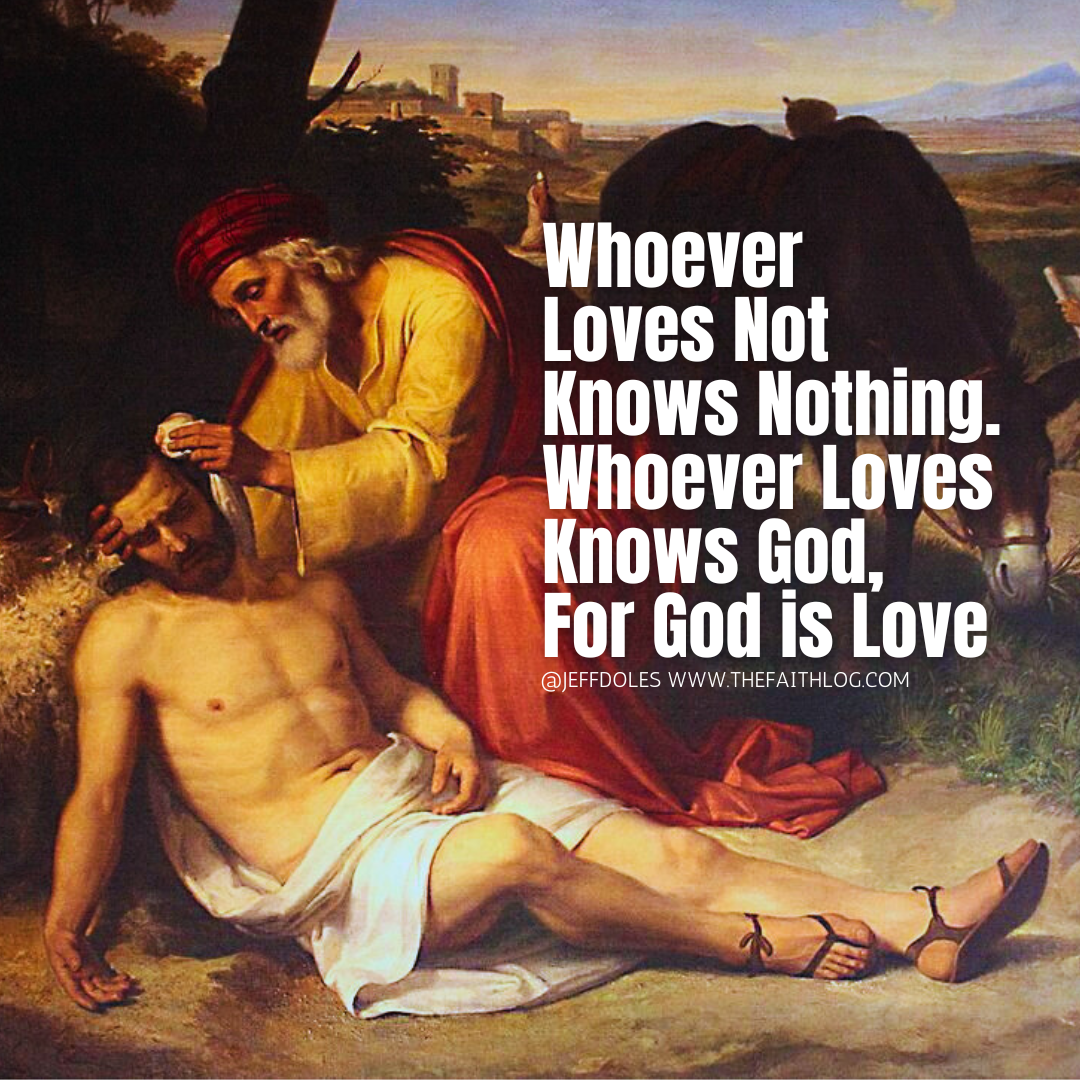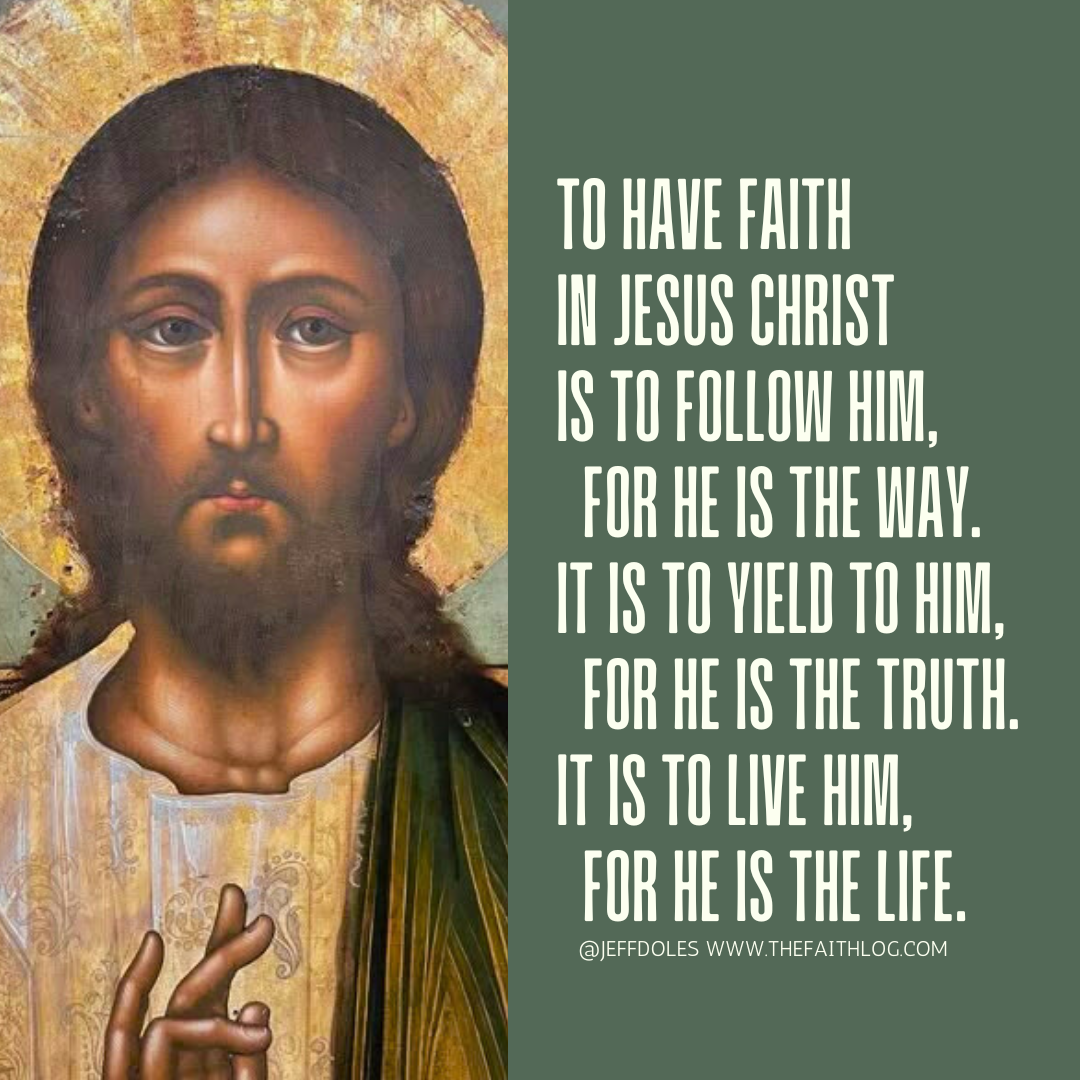The Christian faith is not an innovative one — we do not make it up as we go along. It is, rather, a traditioned faith, handed down generation by generation from the beginning. It is the Apostolic faith delivered once for all to the Church.
Beloved, while I was very diligent to write to you concerning our common salvation, I found it necessary to write to you exhorting you to contend earnestly for the faith which was once for all delivered to the saints. (Jude 3)
The Greek word for “delivered” here is paradidomi, to give or entrust into the hands of another. What has been delivered in this case is the Christian faith concerning Christ and the gospel, and the “common salvation” in which we share. It has been delivered “once for all,” whole and complete, to the saints, the Church. St. Jude exhorts us to “contend earnestly” for this faith. The word is epagonizomai, from the word agonizomai, to strive or labor fervently. Literally, it is to agonize, like combatants in the public games, wrestlers grappling in competition.
St. Paul says something very similar in Ephesians 4:3-6. “Make every effort to keep the unity of the Spirit through the bond of peace. There is one body and one Spirit, just as you were called to one hope when you were called; one Lord, one faith, one baptism; one God and Father of all, who is over all and through all and in all.”
There is one faith, delivered once for all, and Jude means for us to grapple fervently for it, because there were those who would “turn the grace of our God into lewdness and deny the only Lord God and our Lord Jesus Christ” (Jude 4)
Therefore, brethren, stand fast and hold the traditions which you were taught, whether by word or our epistle. (2 Thessalonians 2:15)
Paul charges the Church at Thessalonica to stand fast and hold on to the “traditions” with a powerful, persistent grip. The word for “traditions” is paradosis and refers to that which is given over, delivered, or entrusted to another. Paul is speaking of one faith, the Christian faith, delivered once for all, and whether taught orally or in writing, the tradition is all of one piece. Hold fast to it.
What you heard from me, keep as the pattern of sound teaching, with faith and love in Christ Jesus. Guard the good deposit that was entrusted to you — guard it with the help of the Holy Spirit who lives in us. (2 Timothy 1:13-14)
In Paul’s second letter to Timothy, we see a double action. First, he speaks of what Timothy heard from Paul, the “pattern of sounds words.” Paul has committed it to Timothy, and Timothy has received it — this is the nature of tradition.
The word for “pattern” here is hypotyposis, a compound of hypo (under) and typos (type). The typos is an imprint or image from a die that is struck or a seal that is pressed into the wax. It is like a typewriter key that leaves the imprint of a letter or other character. Hypo emphasizes the underlying position, that the imprint comes from the original image on the die or seal.
There is a pattern or imprint of sound teaching that shows the true and authentic image of the Christ and the gospel. Hold fast to it, Timothy, this good deposit has been entrusted to you. The word for “entrust” is paratithemi, to deposit or commit to one’s charge. This is the first action: the pattern of sound teaching has been entrusted to Timothy. The second action corresponds to this.
And the things you have heard me say in the presence of many witnesses entrust to faithful men who will also be qualified to teach others. (2 Timothy 2:2)
Paul has entrusted to Timothy the sound teaching of the gospel, the pattern bearing the exact image of the apostolic deposit. And now Timothy is to take what has been traditioned to him and likewise tradition it to faithful men, qualified and competent to teach it to yet others. And so it is handed down from generation to generation.




















